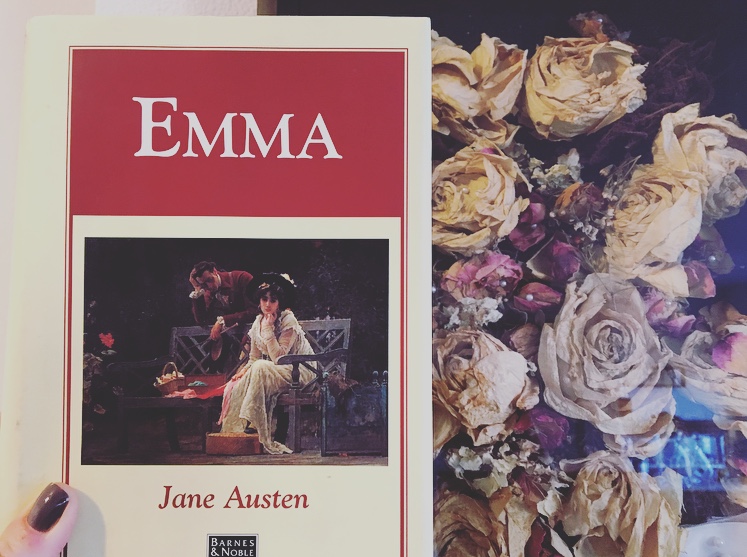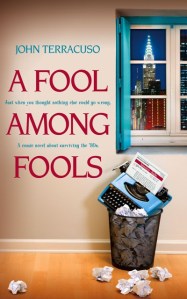
Recap: Courtenay Hameister has been living in a state of anxiety and dread for years. She knows it. She’s accepted it as her way of being. And then she decides to step down from her job as a host of a popular NPR show, knowing that working on the show in a less-showy capacity will eliminate a fair amount of her stress. She’s right, but she quickly realizes in order to better handle her anxiety, she cannot only step down but also must step up and face her fears.
Courtenay Hameister begins a new mission, calling it her Okay Fine Whatever (OFW) Project, during which she must suck it up and say “okay, fine whatever” to all the things that scare her. For a year-and-a-half, she follows this mantra as she dives into a sensory-deprivation tank, goes on 28 first dates, visits a sex club, dates polyamorous men, books a session with a professional cuddler and gets high while writing with her coworkers.
For better perspective, it’s worth noting we’re not talking about a young, hot twenty-something embarking on all this but a mid-40’s woman who never had experience in any of these areas. This is exactly why these leaps of faith are much more than simply “experimentations” but they’re explorations of self-discovery and opportunities to flex her bravery muscles, which only sets her up for the next big thing in her life.
Analysis: Doused in dry humor and brave bluntness, Okay Fine Whatever may have been the exact perfect book to read in the middle of a pandemic. Though compartmentalized into little vignettes, it’s a book that forces you to step back and look at the bigger picture. It’s not about her crazy shenanigans, but about the baby steps she’s taking toward being up to the something bigger in her life. She’s doing the things she needs to do to take a massive leap at the end, and that’s more than I can say for most people.
It must be said that the concept feels a little redundant. Grey’s Anatomy writer/producer/creator Shonda Rhimes wrote the book Year of Yes a number of years ago with a similar idea: say yes to all the things that scare her. But the things Hameister embarks on versus Rhimes are completely different, as is her writing style and voice. So while similar in nature, they’re not necessarily that similar in tone.
Hamesiter is uproariously funny and weird and goes in unexpected directions. Her honesty is astounding; I know I wouldn’t feel comfortable writing half the things she wrote about, let alone doing them. Massive kudos to Hameister for letting it all hang out there.


 Recap: In this classic British romance novel, Emma is one of the most popular and well-liked bachelorettes in her community, but no matter how hard she tries, she is completely oblivious to the true wants and needs of the people around her. If you’ve seen the movie Clueless, it may or may not surprise you to know it’s loosely based on this Jane Austen novel from 1815. Emma is the “Cher” character — or rather, “Cher” is the Emma character — focused so much on matchmaking her friends that she misreads signals for her own opportunities at love — or misses them altogether. In the first half of the novel, she is intent on fixing up her new and lower class friend Harriet (“Tai” in Clueless if you’re still following along with the comparison) with her friend Mr. Elton. But every signal that she believes proves Mr. Elton likes Harriet is a sign he actually loves Emma. The result? Both Mr. Elton and Harriet are crushed.
Recap: In this classic British romance novel, Emma is one of the most popular and well-liked bachelorettes in her community, but no matter how hard she tries, she is completely oblivious to the true wants and needs of the people around her. If you’ve seen the movie Clueless, it may or may not surprise you to know it’s loosely based on this Jane Austen novel from 1815. Emma is the “Cher” character — or rather, “Cher” is the Emma character — focused so much on matchmaking her friends that she misreads signals for her own opportunities at love — or misses them altogether. In the first half of the novel, she is intent on fixing up her new and lower class friend Harriet (“Tai” in Clueless if you’re still following along with the comparison) with her friend Mr. Elton. But every signal that she believes proves Mr. Elton likes Harriet is a sign he actually loves Emma. The result? Both Mr. Elton and Harriet are crushed. Recap: Actress and singer Anna Kendrick proves she’s as funny as you think she is in this bestselling memoir about her path to becoming a Tony and Oscar-nominated actress, best known for her role in Pitch Perfect. Like Tina Fey’s Bossypants, Scrappy Little Nobody reads as if Kendrick is speaking to you with silly lines that you can hear in her voice like “if i saw ‘advanced’ in the corner of a Martha Stewart Living recipe, I’d think, Bring it on, you crazy bitch” or “Player WHAA.”
Recap: Actress and singer Anna Kendrick proves she’s as funny as you think she is in this bestselling memoir about her path to becoming a Tony and Oscar-nominated actress, best known for her role in Pitch Perfect. Like Tina Fey’s Bossypants, Scrappy Little Nobody reads as if Kendrick is speaking to you with silly lines that you can hear in her voice like “if i saw ‘advanced’ in the corner of a Martha Stewart Living recipe, I’d think, Bring it on, you crazy bitch” or “Player WHAA.” Recap: It’s a premise we’ve seen before. Part 40-Year-Old Virgin, part American Pie, Losing It tells the story of a 26-year-old girl, Julia, who is yet to lose her virginity. Still a little lost in life and determined to have sex, she quits her job and moves to North Carolina for a summer to stay with her Aunt Viv, who she barely knows and of whom she only has vague childhood memories.
Recap: It’s a premise we’ve seen before. Part 40-Year-Old Virgin, part American Pie, Losing It tells the story of a 26-year-old girl, Julia, who is yet to lose her virginity. Still a little lost in life and determined to have sex, she quits her job and moves to North Carolina for a summer to stay with her Aunt Viv, who she barely knows and of whom she only has vague childhood memories. Recap: Just in time for Christmas, an angel wants to grant a wish to a child. And that wish comes just in time, since a little boy from Pine Grove, California recently witnessed “Santa Claus” get killed in a cemetery. What better timing than now, so the boy can ask the angel to revive Santa from the dead? All of this happens while the townspeople in Pine Grove are getting ready for their annual Christmas party at the local church, near the cemetery.
Recap: Just in time for Christmas, an angel wants to grant a wish to a child. And that wish comes just in time, since a little boy from Pine Grove, California recently witnessed “Santa Claus” get killed in a cemetery. What better timing than now, so the boy can ask the angel to revive Santa from the dead? All of this happens while the townspeople in Pine Grove are getting ready for their annual Christmas party at the local church, near the cemetery.
 Recap: First, we’re given a report card. Then, a letter. Next, some emails. A little dialogue mixed in. And suddenly, we’re piecing together a puzzle full of characters coming at the reader from a wide variety of sources. This is the organized chaos in which author Maria Semple tells the story of architect-turned-stay at home mom Bernadette Fox, her Microsoft whiz genius husband Elgin Branch, and their bright, ahead-of-her-years daughter Bee.
Recap: First, we’re given a report card. Then, a letter. Next, some emails. A little dialogue mixed in. And suddenly, we’re piecing together a puzzle full of characters coming at the reader from a wide variety of sources. This is the organized chaos in which author Maria Semple tells the story of architect-turned-stay at home mom Bernadette Fox, her Microsoft whiz genius husband Elgin Branch, and their bright, ahead-of-her-years daughter Bee. Recap: When three women have moments of crises, they decide it’s not time for an escape, but for a new life altogether. So begins Rome for Beginners, set in modern-day Rome, telling the stories of three American women who have left the States only to meet and befriend each other in Rome. They have become close, and together, they struggle with everyday problems — work, ex-husbands, children, and dating. But to add to it all, they’re in a foreign country, attempting to learn a new language and culture.
Recap: When three women have moments of crises, they decide it’s not time for an escape, but for a new life altogether. So begins Rome for Beginners, set in modern-day Rome, telling the stories of three American women who have left the States only to meet and befriend each other in Rome. They have become close, and together, they struggle with everyday problems — work, ex-husbands, children, and dating. But to add to it all, they’re in a foreign country, attempting to learn a new language and culture. When you’re a humorist who writes memoirs, how much of your storytelling must be true? That’s what NPR is asking themselves about David Sedaris, the bestselling writer who reads some of his stories for the radio station. Sedaris is best known on NPR for his now classic Christmas story about the time he spent working as one of Santa’s elves at Macy’s.
When you’re a humorist who writes memoirs, how much of your storytelling must be true? That’s what NPR is asking themselves about David Sedaris, the bestselling writer who reads some of his stories for the radio station. Sedaris is best known on NPR for his now classic Christmas story about the time he spent working as one of Santa’s elves at Macy’s.